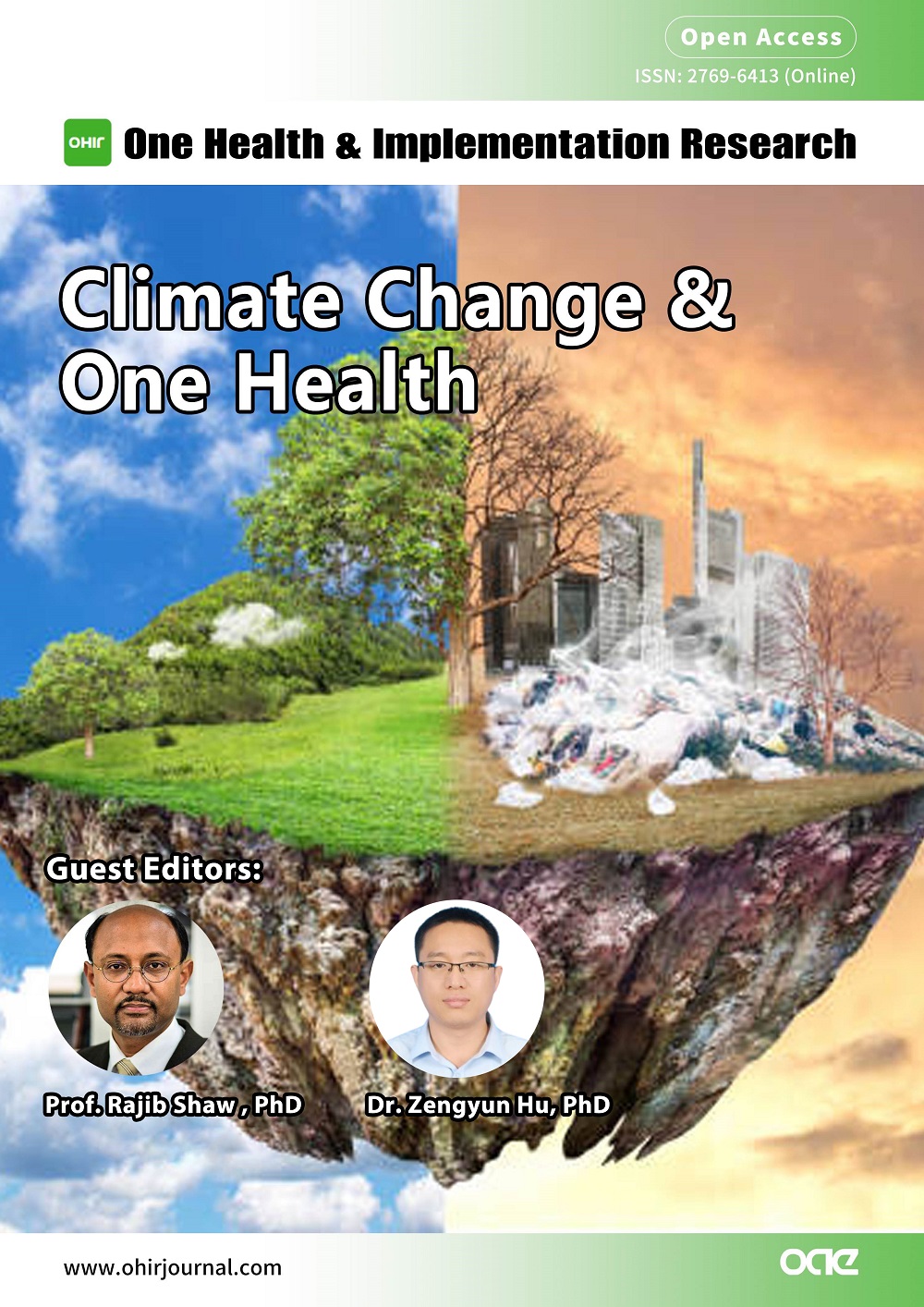
Topic: Climate Change & One Health
A Special Issue of One Health & Implementation Research
ISSN 2769-6413 (Online)
Submission deadline: 31 Dec 2023
Guest Editor(s)
Graduate School of Media and Governance, Keio University, Fujisawa, Japan;
Senior Fellow of Institute of Global Environmental Strategies (IGES) Japan, and the Chairperson of SEEDS Asia;
Chair of the United Nations Science Technology Advisory Group (STAG) for disaster risk reduction; Co-chair of the Asia Pacific Science Technology Advisory Group (AP-STAG).
Special Issue Introduction
We welcome submissions on the selected topics and beyond. This list is indicative and non-exhaustive:
1. H-EDRM framework and its implication of climate and disasters
2. Climate change and heat waves
3. Climate change and vector / water borne diseases
4. Comprehensive health system resilience
5. Mental health and climate change
6. Air pollution and its health impacts
7. Climate change, water stress and health impacts
8. Health and environmental co-benefits of climate change mitigation
9. Ecosystem services, climate change and health issues
10. Extreme events and their health impacts
Submission Deadline
Submission Information
For Author Instructions, please refer to https://www.oaepublish.com/ohir/author_instructions
For Online Submission, please login at https://oaemesas.com/login?JournalId=ohir&SpecialIssueId=ohir221129
Submission Deadline: 31 Dec 2023
Contacts: Zoe Xue, Science Editor, Zoe-Editor@ohirjournal.com




